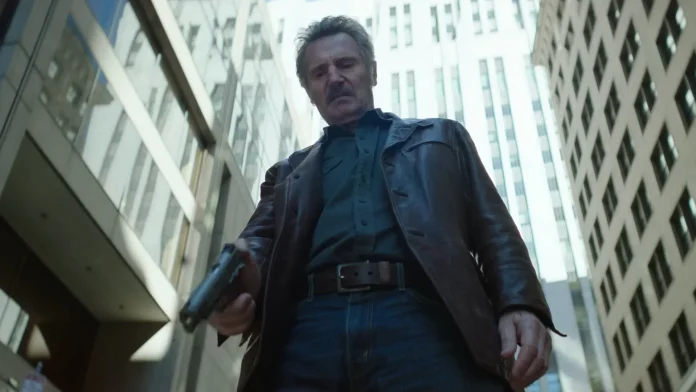Absolution (2024) takes a different route from the typical Liam Neeson thriller, presenting a grounded, introspective story that revolves around moral redemption and the impact of a life steeped in violence. Under the direction of Hans Petter Moland, the film follows Thug, a seasoned enforcer for a Boston crime lord, who grapples with a diagnosis of CTE, a degenerative brain condition resulting from years of head trauma. This news forces him to confront his past choices, driving him to seek reconciliation with his estranged daughter, Daisy, and her son, Dre.
Neeson’s portrayal is powerful, injecting humanity into a man who has long operated in a world of brutality. His character, “Thug,” embodies the weight of both physical and psychological damage, especially as he tries to reconnect with his family despite their justified resentment. Neeson’s commitment to this role elevates the film; he captures a sense of vulnerability that stands out in scenes where Thug’s cognitive issues reveal themselves, leaving him struggling to recall even basic information. This ailment serves as both a plot device and a thematic focal point, emphasizing the long-term consequences of a life of violence, not just on the mind but on relationships and personal identity
Moland’s direction gives Absolution a somber, slow-burn quality, emphasizing a more reflective tone than in typical action fare. While there are the expected action scenes—brutal confrontations and high-stakes exchanges with the crime boss’s reckless son, Kyle—the core of the film lies in Thug’s inner journey. The story often shifts between grim reality and unsettling dream sequences where Thug relives violent moments from his past. Some of these sequences fall flat, though they underscore the lingering influence of Thug’s upbringing, suggesting that toxic masculinity has shaped his choices and strained every meaningful relationship he’s had

The supporting cast also adds depth. Frankie Shaw brings a raw edge to her role as Daisy, whose distrust of her father complicates his efforts to reconnect, while Yolonda Ross, in a brief yet memorable role as a prostitute who grows close to Thug, adds compassion to a story rooted in hardship. Ron Perlman’s portrayal of the crime boss is relatively restrained but underscores the generational tension as Thug is forced to collaborate with Perlman’s impulsive son, who seems set on mirroring his father’s ruthlessness
Absolution doesn’t break much new ground in the crime genre, and some elements—particularly Thug’s bond with a captive woman—could have been explored further to make the emotional stakes more compelling. Still, it stands out for its commitment to character over spectacle, offering Neeson a role that allows for reflection as much as action. Fans looking for a more thoughtful take on the cost of violence will appreciate its contemplative approach, even if it lacks the fast-paced excitement of traditional action films.




